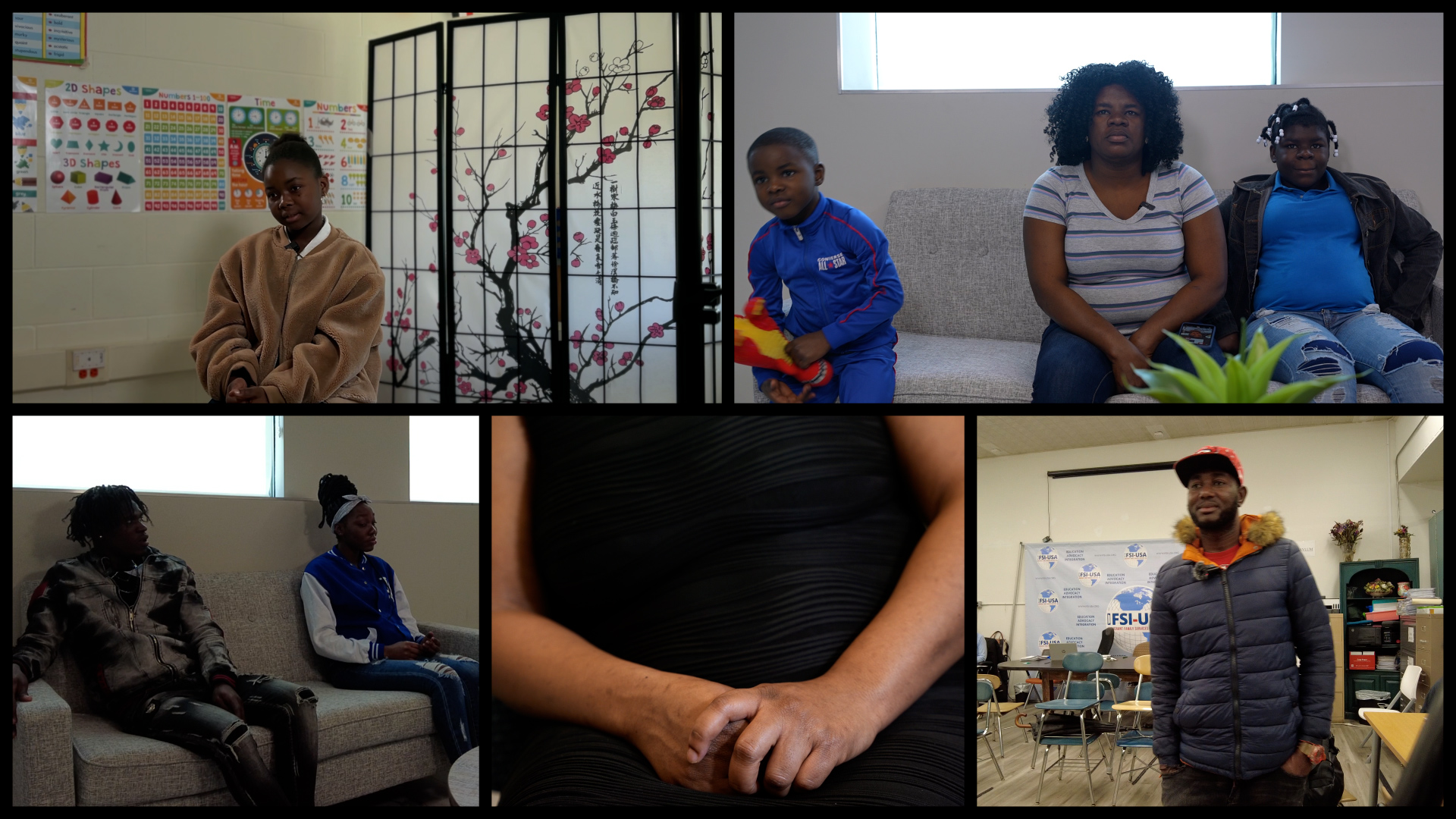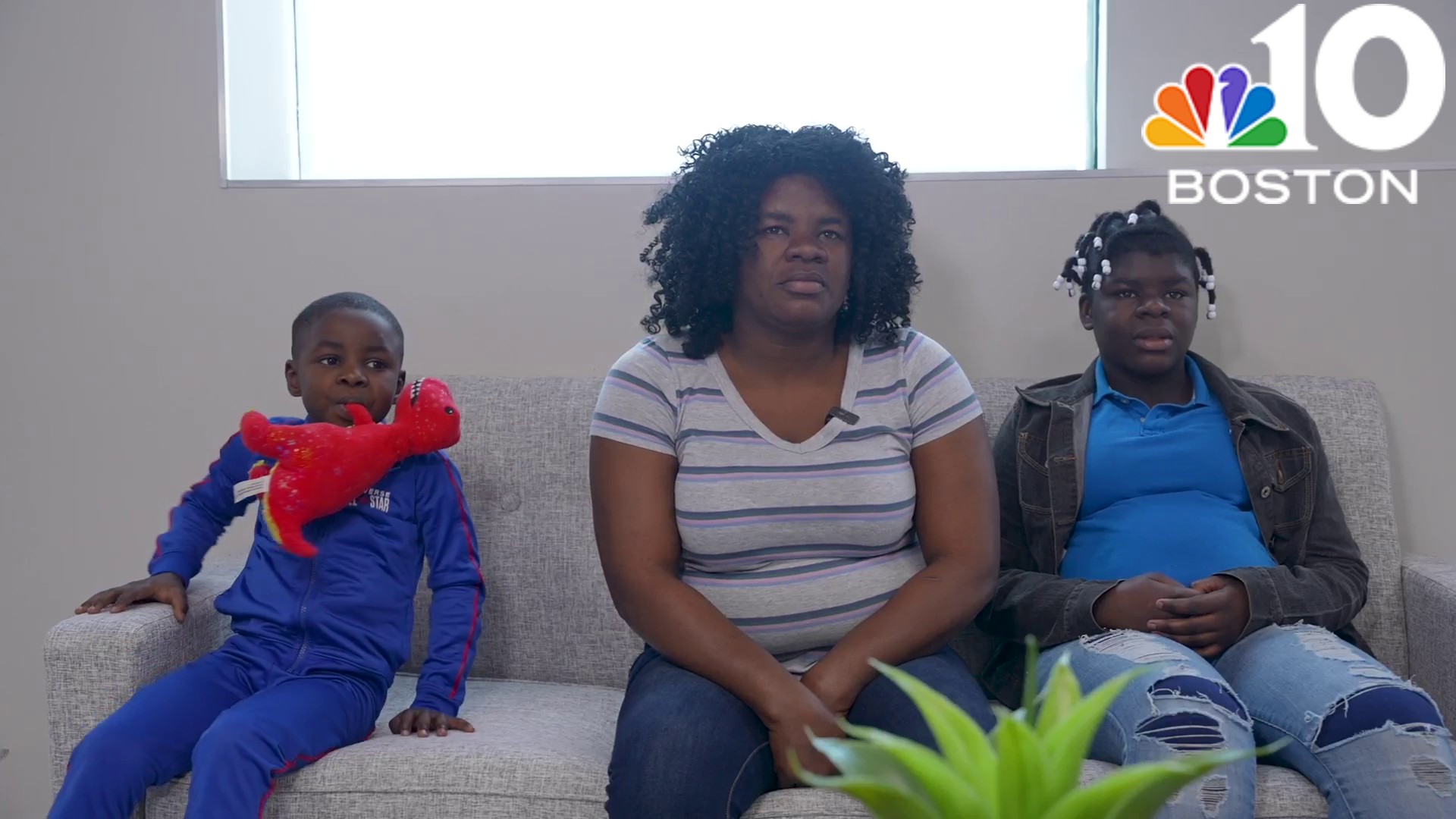Follow NBC10 Boston:
https://instagram.com/nbc10boston
https://tiktok.com/@nbc10boston
https://facebook.com/NBC10Boston
https://twitter.com/NBC10Boston
Immigration continues to be a divisive topic as we move into 2025.
Over the past two years, many conversations in Massachusetts have centered around the strain on the state's Emergency Assistance shelter system and the financial resources it takes to resettle migrant arrivals. But some advocates say we need to consider not just shelter, but the mental health needs that come with the upheaval of many migrants' journeys if we have any hope of helping them assimilate into communities.
"In July 2023, there was a tragic incident that occurred at a migrant site. And it was a completed suicide. And for me, if you have a completed suicide, you have to understand that there's a ton of other mental health issues going on. If you just think about the journey, right, the influx of migrants and the journey that they had to take, you can not only understand, like the amount of trauma, right, that they have had to endure," explained Tracey Taldon, a licensed independent clinical social worker in Massachusetts.
If you or someone you know is in crisis, call or text 988 to reach the Suicide and Crisis Lifeline or chat live at 988lifeline.org. You can also visit SpeakingOfSuicide.com/resources for additional support.
Taldon is also the founder and owner of Wellness for Our Future, which focuses on normalizing mental health treatment.
"I started to advocate for mental health support and services for the migrants who are living here and have to kind of have to acculturate to a new community. There's a lot to learn, but there's a lot of trauma that has occurred," she explained.
Earlier this year, NBC10 Boston spoke to two migrants who were willing to share some of the intimate details of their stories, anonymously.
A difficult journey started as a child
"I came from Brazil and, had to through forest, you know, and a bunch of obstacles to get here, and that wasn't easy. That was really tough," a Haitian woman told us through a therapist who works with her in her native language - Haitian Creole.
She was still a child when her father decided to relocate his children out of their home country, concerned about the state of things.
"There were, like, five siblings and her dad decided, OK, the way it's going on right now in Haiti, there's no way. I'm sending you somewhere else. And then he sent first two kids away, and after he was her turn in return, you know, or the siblings to go to leave Haiti because up to that had a feeling it was going to be really bad. So he didn't want them to stay in Haiti."
Her father would remain in Haiti, separated from his children. His daughter has spent years relocating, trying to start a family and find a place to settle. Her most recent journey took her through the forest, relying on maps and the experience of others to make the journey.
"They were not using GPS because you don't have Wi-Fi or signal on your phone. They were guessing where they were going," the interpreter said.
"When you are in the forest, you really have to, go slow with what you have," she explained. They had something they would put in the water to make it drinkable, but at one point, they ran out. Her young son ended up sick as a result.
When they finally arrived in New York, they went to a hospital where he could be treated for an infection.
"He went to the hospital, did a lot of tests on him, you know, to determine what was, you know, the problem. But it's a step-by-step. He got, you know, better, his life has improved, but he had to go through a lot to recover from it, from the infection."
The complicated experience of immigration
Another man who also left his home in Haiti told NBC10 Boston despite his years going through immigration processes in other countries, he still found the system in the U.S. particularly confusing.
He entered the U.S. by applying through the CBP One mobile application, which allows migrants in northern and central Mexico to present themselves at a point of entry to cross the border. The process granted him an I-94, a document that allowed him to legally enter the U.S., but it does not guarantee them a path to permanent residency or citizenship.
"Still, he doesn't understand how he's going to get his proper documentation through the CBP One," he explained through an interpreter.
He said his journey has been long, taking him through countries like the Dominican Republic, Chile, and Brazil. Out of all the countries he's migrated through, he says the process to enter the U.S. has been the most challenging. But some good things have happened along the way.
"To go to the Dominican Republic, he crossed the center of Haiti that they called Mirebalais. This is where he met his wife. She was very young, 18, but did stay in touch until she became a young adult. And then that's how they knew each other. And then he got married after that."
He and his wife decided to try for Massachusetts. They hope to one day start their own business
"The hardest part for me being here is because I don't have any family to help me," he told NBC10 Boston, explaining that while he's grateful for support, it's frustrating to have to rely on the state.
Despite the challenges, both families are still hopeful about creating a life in the U.S.
"The same way my father did for us, I would like to be able to do the same for my kids so they don't grow up in poverty and, you know, so we could have a better life than I had," the woman told NBC10 Boston.
Her family - the woman, her husband and two young boys - found themselves like many others in Massachusetts, relying on the Emergency Assistance program as it was strained to its limits. At the time we spoke to her, she'd been in the program for about a year and had three months left in the hotel before she would be asked to move out to accommodate another family. This was before the state made tweaks to the system, changing the way families are placed and the length of time they are allowed to stay.
Families are now being assessed based on risk and need and being directed either to a low-risk rapid track, which limits stays to 30 days, or a high-risk bridge track, which extends to six months. But as Taldon points out, some families may need more than just shelter.
"Homelessness comes with trauma, right? And trauma comes with homelessness. In order for folks to successfully move into community, we need mental health support," she said.
But the question of cost remains. Currently, the state grappled with an estimated $1 billion price tag on the shelter system. The Healey administration has been working to get that number down under $400 million, which means more policy changes for 2025.
On the federal level, President-elect Donald Trump has vowed to make immigration reform - and mass deportations - a focus of his new administration.



